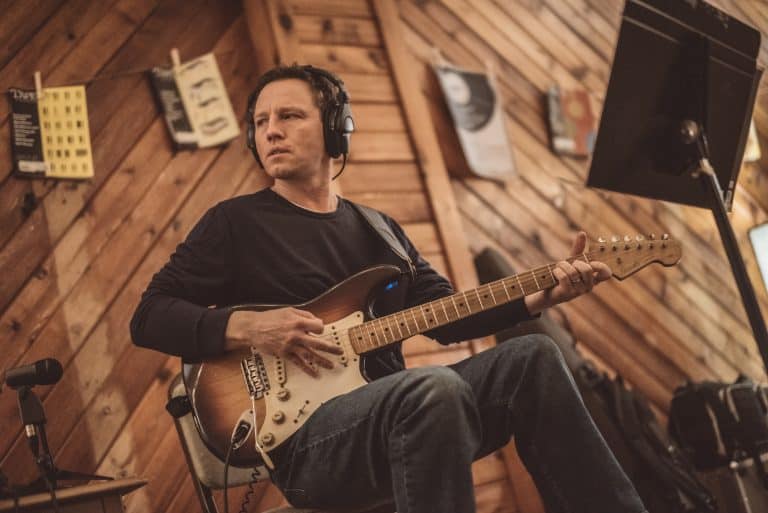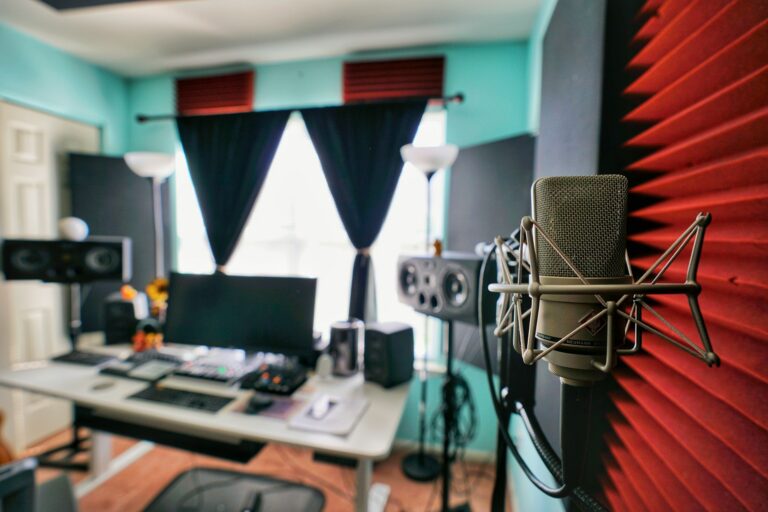The Basic Guide to Live Show Etiquette (For the Fledgling Musician, Band or Artist)
Live shows are the way gigging musicians can make a decent living and are the lifeblood for upcoming bands and artists. To navigate the treacherous nature of the live show, an awareness of unspoken courtesies and rules is necessary. A smooth and harmonious performance is contingent upon a pragmatic and consistent approach to these rules.
Some of the following tenets may seem like common sense, but it’s not until you’ve played with every stripe of musician and at every permutation of venue that you’ll understand the need to reinforce the basics of etiquette and would-be common behavior.
Every one of these points deserves a chapter unto itself but for the sake of a quick and dirty blog post, I humbly present the first edition of The Basic Guide to Live Show Etiquette (for the Fledgling Musician, Band, or Artist). Though similar in overall context, the studio musician requires a wholly separate, but not contradictory list.
- The core principle of the live show is awareness. Be familiar with the situation as much as possible. Know the production timeline, the address of the venue, the stage plot, your setlist and any extraneous responsibilities like bringing and loading merchandise or gear. With every semi-ethical or practical rule presented here, things can be bent or broken, but an awareness of every situation is the center of the live show universe. If you’re a democratic band, brief meetings or e-mail threads before shows or practices are essential to disambiguate your role for the upcoming gig. If you’re a hired gun, you generally have less specific responsibilities, but you must nonetheless do your homework to fulfill your professional commitment to your artist or client. If you’re the leader of your group, all of the need-to-know information should be recitable upon request, with a clear plan of execution communicated to your fellow musicians well beforehand.
- Know if you’re going to be late, and if you are, to notify your band mates. It’s understandable if you get snagged here and there, but you must communicate your status in these situations. A simple text message is the easiest method. This allows for your band members, sound engineers and other bands or artists to plan around any significant change in plan for load in, sound check or otherwise. All this being said, punctuality is a varying skill among musicians; the best and most successful kinds tend to make sound check in plenty of time.
- Keep your setup swift and memorized. Loading-in should be muscle memory, as should loading-out. Know how to breakdown your gear as if a flood were coming towards the stage. Likewise, know how to assemble everything in your setup as if you were being judged for speed and accuracy. If you abide by this practice, each stage will start to look like a blank line for your signature. If you watch a seasoned musician setup and breakdown, they are quick and fluid. Follow Bruce Lee’s maxim: “be like water.”
- The sound-guy or girl is your friend. Sound-people deserve medals for the obnoxious music and the big egos they endure on a regular basis. In case you’re unfamiliar, here’s how the sound check goes 99 percent of the time: the initial line check happens in the house speakers then the individual monitor mixes are adjusted (don’t ask for “more me” until the signal is given that they’re ready to check monitors and only when it is your turn) then a front of house mix is established when the band runs through a song or two. Don’t linger on tuning or adjusting your tone during sound check, you’ll have time to tweak your sound after everyone else is done. In the same vein, don’t play your instrument over others trying to sound check; it’s not your personal warm-up time. If you have an experienced tech, they will guide you through the process relatively painlessly. If you need something more or less in your monitors during the show, get the front of house engineer’s attention during a break and point at the instrument you need with one hand while signaling up or down with the other. Keep in mind, you will experience wildly varying results with the sound at all different styles of venues, and that’s okay because you can adapt and listen even in the worst situations. In any case, don’t be a diva, be a friend.
- This is more of a tip than an etiquette issue, but it bears addressing: bring –and wear—earplugs. Some musicians don’t like earplugs because you hear less of the frequency spectrum and certain kinds can be uncomfortable, but the pros outweigh the cons in terms of health and wellbeing. Tinnitus and hearing loss are not inevitable; at the very least you can keep them at bay. Learning to play with plugs in is the first step, and then for it to be effective, it must become a habit. I tend to be bad at this one, but do as I say, not as I do.
- Unless you’re a touring band with roadies there’s no reason for you to load on to stage while the other band is still packing up. If they’re lagging behind, politely point out to the band the need for them to breakdown. This is a common social exchange among gigging musicians and most will oblige gladly. If you’re the really nice type who likes to help, ask them if they want help loading off the stage. In most cases, they will decline your assistance but accept your willingness to help as a signal that they should get moving. In extreme cases, you may need to get the sound people or the production manager involved to expedite an especially sluggish band’s load out process. Unless absolutely necessary—not only because it is rude, but also inefficient—you should avoid loading onto the stage while other bands are loading out. You are not a rockstar (yet), and therefore you must afford everyone else a modicum of obligatory patience.
- On the other hand, if someone is loading on stage as you are breaking down, go back to the first rule: awareness. Did your band go late? Is the production timeline behind schedule in any way? Are you packing up slowly? If not, the person loading on the stage is likely a rookie or full of themselves, invariably with little sense of the timing of a live show. Intone this phrase: “Hey, if you give me just a second I’ll be out of your way.” Most people will recognize this as accommodating and let you continue your load out process, but there are always belligerents out there who must claim their territory. If you encounter someone who continues this line of passive aggression, remember that it is not your problem: it is his or hers. Continue to load off the stage as normal, as they have just made themselves an inconvenient obstacle to circumvent. There is no need to give into hostility; you are in the right by not creating the problem.
- If you have a band tab, find out the total and divide it such that each member is entitled to his or her fair portion. Be especially cautious in these cases, as some venues will charge a band member or manager’s credit card for the whole order if the tab goes over. Keep yourself in check, and ask for the remaining total if you’re ever in doubt. This goes hand-in-hand with treating your wait staff and bartenders as nicely as you would like to be treated. Remembering to tip is essential if you want to have any type of special treatment the next time you play there. No matter how great you think you are, no bar or venue will roll out the red carpet for you because of your music, only your respect and courtesy will do that.
- If you are playing for tips, or a tip bucket is provided to you, by all means use it to your discretion. The tip jar dance is a delicate one, but it’s generally as simple as being aware of your crowd and your means to circulate the jar itself. In the Music City Toppers, a band I play for on lower Broadway in Nashville, we use singers, horn players, or anyone else who may not be playing during a given song to move the tip bucket through the audience. Generally, your lead singer or designated MC for the show should announce the tip jar is coming around with an expression of gratitude to those who contribute. Find a way to personalize or incite tips. With the all instrumental group, Time is Tight, we will play a cover of a popular song and ask a trivia question about it beforehand: the first person to write the correct answer on a five-dollar bill and put it in the tip jar will get a prize (normally a drink from the bar on us). This can seem hokey, but it involves the crowd in your show and generates more income for your band.
- Finally, have a ritual. Before nearly every show I play, I try to remember every good thing I can think of that’s happened to my friends, my family and me in the past week. It puts me in a focused and positive mindset. Some people like to meditate, pray, listen to music, read a book, drink tea, exercise or have any other personal custom before they go out and put on a show. As habitual people, we should develop a preparatory routine that lets our bodies and minds know when its time to perform. It’s natural that the more you play out, the less stage fright you will feel before a gig. The more you learn to tune in to a relaxed, prepared state of mind before a show, the better you will play.
- Here’s a bonus point that applies to those in touring bands: be respectful of your other band members’ obligations after the show. E.g. if you all traveled in the band’s van or tour bus to get to the venue, and your bass player has to get home to be at his niece’s graduation early in the morning, don’t loiter aimlessly or take it easy after the show. Load out and take care of business in a timely manner. Sometimes it may feel as if your work is done after the final note of a long, hard-fought set—so the urge to chill or socialize is ingrained in your psyche. Here again I emphasize awareness. Being in a band means taking on the task of accommodating every member’s schedule. Failure to do so displays a lack of respect to your band mates, and from experience I can tell you that this doesn’t lead down a successful path.
To reiterate, an entire book could be written about all the extra dimensions of the live show and its whole web of interacting responsibilities and extemporaneous scenarios. There are things I did not touch like booking, contracts, vehicle upkeep, travel expenses, networking and other accompanying and miscellaneous issues that come with the process of playing live but do not pertain to the immediate, in situ experience. These basic, if not fairly obvious, rules will get you started or reinforce your understanding of the protocol of a live show. Of course, along the way you will develop your own code of live show ethics depending on your situation and your experience. From the neighborhood coffee shop to the outdoor festival, if you follow these steps, you will avoid needless conflict and get much more out of playing live. Recall the purpose of the live show: to perform music! People want to dance, sing along or just enjoy your skill as a musician, so it is your job to accomplish the behind the scenes minutia of the live show as gracefully as possible.







